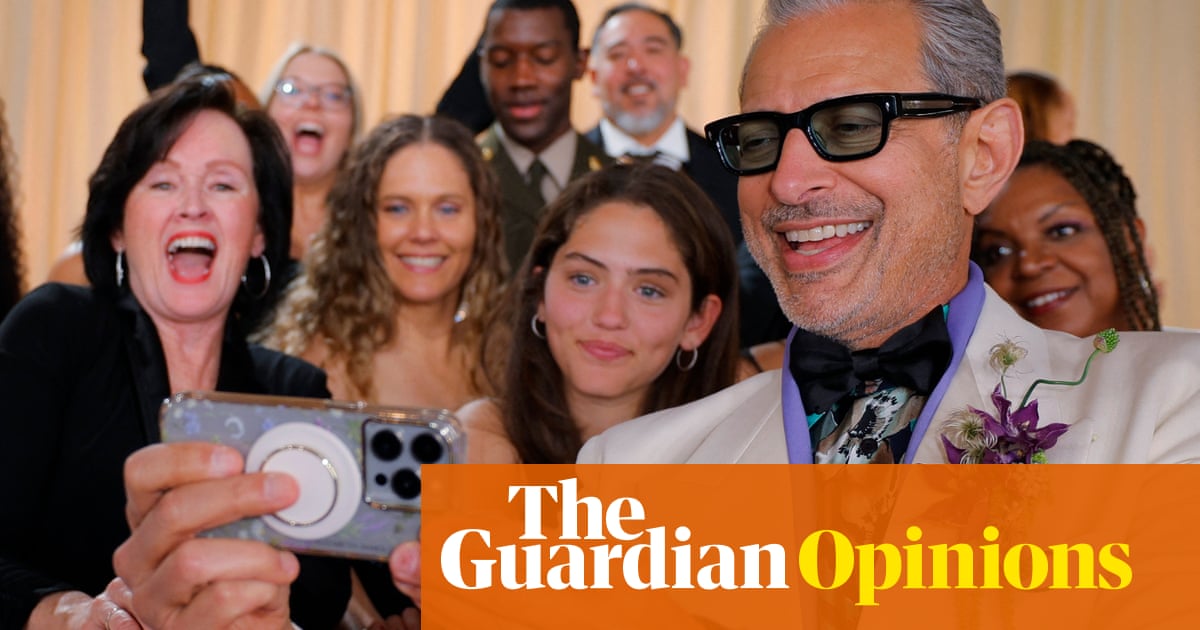I am kneeling quite awkwardly on a cushion in a yoga studio in London’s Shoreditch on an unseasonably chilly Wednesday and wondering when exactly will be the optimum time to rearrange my legs. I have an ice-cold mango and passion fruit kombucha beside me and an agonising case of pins and needles. The solution to pins and needles, I learned a few years ago, is to directly confront the agony: pull your legs out from underneath you, bend your toes up as high as they can reach, and yes, it will hurt far more initially, but then the pain subsides. I’d like to do this very much, but sitting opposite me is a man – sitting all around me are men – and it is his turn to talk. He has eight minutes to tell us – all men, all strangers – what has been bothering him lately, or this week, or today, or for his entire lifetime, and right now he is on a roll.
Here in Men’s Circle, if you go over your allotted eight minutes, the facilitator of the group is meant to give a polite little “wrap it up now, mate” cough, so everyone can have a fair turn, but nobody wants to do that with this particular man: after a slow, shy start he’s on a tear and words and feelings and secrets I’m not even sure he knew he was going to say are tumbling out, and it feels rude (and possibly destructive) to do anything to stop him. So I’m just going to keep my legs tucked up until he runs out of breath.
As ever, my mental health is currently a work in progress. Sometimes my mood is calm and balanced, and sometimes it sinks to the bottom of the sea with no notice, and sometimes it’s hard for me to personally notice that my psyche is underneath the Titanic until it’s been there for a couple of weeks. I’ve done a lot of things to try to get my mood under control. I’ve also gone long periods where I’ve been very obstinate and done nothing to help myself, which has been “unfun” for the people around me. So I’m reasonably open-minded when it comes to, well, the mind. But when I heard about men’s circles, regular group therapy-like sessions aimed specifically at men, which gently cajole sometimes reluctant blokes into talking (out loud!) about their problems and discussing all things masculinity, I was quietly cynical. What will talking to a group of men do that any other traditional form of therapy won’t? Most times when I encounter a new man I just learn what Premier League club they like and start naming some of their players (“Oh, Brentford? Kevin Schade.”) A small part of me was afraid I’d spend the evening proving how many Nottingham Forest fullbacks I knew.
Two, or maybe two and a bit hours later (it’s hard to tell exactly – I feel somewhere between surprised and dazed), I emerge on to the same weirdly cold street. People are laughing outside pubs, and bars are lit up in neon blurs. Normally, I’d be drawn to go in for a quick drink and maybe text someone to see if they want a pint, but I feel floaty and clear and new. I was convinced I wasn’t going to speak tonight, but when my turn clicked round and it was my time, I did eight full minutes, thoughts falling out of me before I could really even think them, and now I feel lighter, better, unclenched and relieved. I walk all the way home for some reason, a little over an hour, no headphones or checking my texts, just turning thoughts over in my brain. There’s a smile on my face. When I get in I go straight to bed and sleep like a baby.
Men’s circles are regular meetings (ideally in person, but they can also be conducted over Zoom) where, well… men sit in a circle. And talk. With Men’s Circle, the group I killed my legs in, each man has eight minutes to say whatever’s on his mind: eight minutes is one of those curious periods that feels like nothing when you think about it in the abstract (imagine I was eight minutes late to meet you, which I normally am when I meet people: not that bad, is it?), but when you’re confronted with talking through it, it suddenly feels endless and huge. Once I started speaking, I was sure I only had about four minutes of agony in me, max, but it turns out, no: I filled the time until I got the polite cough, and sat back amazed while we moved on to the next man’s eight. “Most men talk in their first circle,” says Men’s Circle executive director Pasco Ashton. “It’s actually really rare that we have a man that comes into a circle new and doesn’t share.”
With Andy’s Man Club, a free weekly Monday night meeting that has more than 200 groups all over the UK and where I actually got to sit on a chair, a group of hoodie-wearing facilitators let the shape of each evening fill the time in a way that felt right: some men were there because it was their weekly check-in and they needed a few minutes to do a big verbal exhale; others may well have been in the new shock of a life-defining event and needed a few more minutes to spool out their scrambled thoughts. There are normally drinks and little snacks at this event, so it doesn’t hurt at all to go along, have a cuppa, and find out which one of them you are. I had two cups of green tea and did about five minutes of talking, and felt better for both.

Men’s talking circles aren’t a new idea – there have been meetings in the US, Australia and just generally “Scandinavia” for years – but they are a fairly recent development in the UK. Men’s Circle started in 2020, first as a Covid-necessary Zoom and then a real-life meeting in a park. It has since run for more than 1,000 circles in person and online; Andy’s Man Club, which takes its name from Andrew Roberts, a 23-year-old father who died by suicide in 2016, started in a community hall in Halifax the same year. There are others – Man Academy, Unmasked Man, Inner Outer Journeys, MenSpeak, Talk Club – all with slightly different approaches along the holistic– mental-health axis, and all of which promise to redefine and reapproach the idea of “masculinity”, which is so often linked to the word “toxic”. Masculinity comes with its own issues: according to the Office for National Statistics, three out of four people who take their own lives are men. It’s the biggest killer of men under the age of 50. A 10-year study by Mind found that men were twice as likely as women to participate in hazardous drinking and are more likely to self-medicate with drugs and alcohol. Men’s circles offer a space and time for men to actually speak about these things. Which they are famously bad at.
Pasco and I grab a quick coffee a few hours before my own initial session. He found his way to Men’s Circle for a number of reasons – answering the call from the women in his life to be a better man in the wake of #MeToo; losing two of his male friends to suicide; looking for a way to be more altruistic as he moved into his 30s, but what really got him sitting in a park in a circle over lockdown was feeling disconnected from male company.
“I didn’t feel close with any of my male friends. I didn’t have a richness to those relationships.” Being around Pasco is calming, even just over coffee. He chats elegantly and carefully, lets you speak, then takes his own time talking. You get excited to follow ideas down conversational paths. After four years and hundreds of sessions, it’s a recurring joke in his friendship group that he can’t really “do” small talk any more. “I think now I naturally step into that level of depth,” he says. “Like, I just got back from a festival. I went for a coffee on the last morning and ended up making the woman who was serving cry, because of where the conversation went.”
At every session I’ve been to, I have been surprised by at least one thing a man has said out loud in the room and also surprised myself by what I’ve admitted. “I found that in the circle it’s a practice of telling the truth,” Pasco explains. “It’s saying what’s going on inside. There’s an innate vulnerability to it.” As well as in-person sessions, Men’s Circle offers weekly Zoom sessions, too; closed circles where the same group of men meet regularly for a six-month period and, in that closeness, are able to explore edgier topics, such as sex and intimacy, and though it isn’t the primary function, there is socialising – a three-day hiking trip in the summer proved particularly popular. “Sometimes, I wonder whether the majority of the men are just looking for a social connection. Lots of our members have met up independently, outside circles, face-to-face.” But crucially, it’s rare that a man turns up for one or two sessions and then never again. So many men who experience circles instantly recognise their value, and then they come back, and back, figuring stuff out and building support along the way.

I’m weirdly nervous the first time I go to Andy’s Man Club. For context, this isn’t the first time I’ve ever told someone my feelings. I’ve been in therapy before; I have close friends and a supportive partner; I know there are people in my life I can tell my problems to because they have explicitly said, “Hey, you know you can tell me your problems, right?” My sister recently bought me a SAD (seasonal affective disorder) lamp after seeing me for a brief lunch, which I think is her gentle way of saying, “You were being a bit weird last time I saw you”, and I try to take the right vitamins and get the right quality of sleep and expose myself to the right amount of daylight to keep me on an even keel. That is all to say: the idea of being proactive with and talking about my “mental health” isn’t alien to me, but I still found it oddly hard to find the “right” Monday to go and check out the club, to tell myself to attend, to walk through the door and say something.
I shouldn’t have worried. They welcome you there with an assured and non-threatening “hello”, ask you if it’s your first time (they can always spot a first-timer), then point you to the tea, the biscuits, the chairs. There’s no feeling that you have to stutter through some small talk if you don’t want to – you can choose not to talk (few people end up doing this, but some do, and their decision is skipped over as lightly as if they said “No thanks” to having cheese on their Subway order).
I wasn’t the oldest, or the youngest, I was just one man among many. There are a few opening questions: a quick mood check-in, a “what brought you here today?”, a matt-black football is passed around the room and only the holder is allowed to talk. If the group is large enough, you split into sub-groups and get a few minutes each to say, out loud and without judgment, what you want to get off your chest (“Really, six or seven is pretty magic,” Pasco explains over that coffee).
When it was my turn, I grabbed the football with clenched fingers, stared at the floor, and for about five minutes straight said what had been bothering me: how my mood had been all over the place this year, so hard to control, moving in great swings that I could never get a handle on; how this week, weirdly, I’d not felt so bad, but how I couldn’t actually relax in that state of not-badness, because I didn’t know why I didn’t feel so bad; how I keep telling myself that “next year” I’m going to get myself sorted, but how I am tired of waiting until that arbitrary moment to feel better, how I’d like to start doing it now. The group facilitator thanked me for sharing; a few words of lived-experience advice were offered from around the circle; the ball was passed on. I expected to feel like I was under a glowing spotlight, with everyone staring at me (and whispering: “Look at this guy! He can’t even have a normal mood!”), but what you soon learn from the rest of the session – by spending more time listening to other men than talking as one yourself – is, curiously, it’s reassuring to know how many other people are also struggling.
“Men’s mental health” has become a bit of a buzzword in recent years, in a way that, arguably, has emptied the phrase of a little of its meaning. There have been a number of campaigns that urge men to talk, to reach out, to open up – high-profile sportsmen such as UFC fighter Paddy Pimblett, boxer Tyson Fury and footballer Richarlison have all shared their own stories of seeking help and therapy and told men it’s OK to do the same – but the practicalities of doing so can still be a stumbling block.
At Andy’s Man Club, facilitators start the session off by saying what’s on their mind, and seeing someone else share so earnestly and straightforwardly normally coaxes the men around the circle to do the same. There are recurring themes and the familiarity of them are oddly soothing (in one circle I sat in, two men had experienced almost exactly the same breakup: it must have felt good to see another ship on the sea). At the start of the session there might be some jangling legs and avoiding of eye contact. By the time I’ve left, long after I’ve listened and shared, I’ve given at least five strangers completely unnecessary handshakes.
It’s all very well seeing a poster telling you to “talk to a mate”, but sometimes the reality is it feels more soothing to go to the pub with a familiar friend and spend a couple of hours absolutely not looking directly at what is bothering you than it does opening up in front of Monday Night Football (and sometimes the reality is, you don’t have a mate to talk to). There’s a loneliness epidemic among men, and a suicide one, too, and there’s no doubt talking can help.
It’s hard to know the exact cause of the mental-health gender disparity between men and women – though women are more likely to be diagnosed with depression, men are less likely to seek that help in the first place; women are more likely to attempt suicide, but men are more likely to complete it; men are more likely to self-medicate with drugs and alcohol, and less likely to make a doctor’s appointment – but one definite solution to get over the difficult hurdle of communication.
There’s still a strange stigma attached to the idea of men, in a room full of men, talking about men’s things. To friends, the idea would be met with a scoff – “sounds a bit Andrew Tate, doesn’t it?” – which is the exact thing men’s circles are trying to shake. There’s some weird chemistry to being in a room with other men, all bringing something to get off their chest, and just… talking. And listening, too: it’s not quite a conversation, but a space to speak and be spoken to and then some unseen alchemy happens, and you walk away feeling better. “That’s what a circle is,” Pasco says. “A little space to see what comes up in silence when someone is really listened to. That’s kind of all it is: good listening.”
Last March, then-shadow health secretary Wes Streeting spoke about the “crisis in masculinity” facing young men in the UK, with suicide the biggest killer of males under 50, telling the Telegraph that a men’s health strategy was under consideration. Until that ever happens, if that ever happens, there is a network of men’s circles out there, in welcoming rooms on Mondays and Wednesdays, that are helping men to do the simplest and hardest thing to do: talk. The circles aren’t meant to be one-offs, and I will be back. It’s just really, really worthwhile. The day after my first session, I go on a morning walk and send a voicenote to a mate (“Hey can’t be bothered to type–”), who remarks on how oddly calm I sound. I feel it.
If you have been affected by any of these issues, contact Mind or call Samaritans on 116 123

.png) 2 months ago
37
2 months ago
37













































